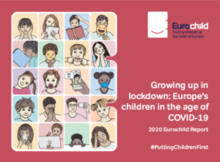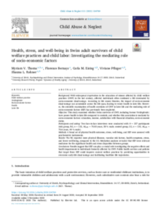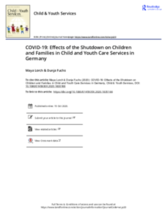

Displaying 71 - 80 of 423
This study shows that, when researching historical compulsory social measures, the inclusion of formerly institutionalised individuals in development and implementation is not only feasible, but is of significant benefit to the quality of the research.
This report reflects on the effects of the coronavirus pandemic on children. It compiles information gathered from 25 countries across Europe, and provides recommendations for improving public policies in the short and long-term to support better outcomes for children and families, including children in alternative care or at risk of separation.
This article presents empirical results from a study (2015–2018) on young people leaving care in Luxembourg. A special focus deals with the processes of transitioning from care to work.
This study examined whether Swiss survivors of child welfare practices (CWP), including former Verdingkinder, have poorer health in later life compared to controls, and whether this association is mediated by socio-economic factors: education, income, satisfaction with financial situation, socio-economic status.
The aim of the present study was to examine differences in perceived living group climate between boys and girls in a sample of 344 youth receiving residential youth care in the Netherlands.
This study explored the feelings, perceptions, and stigma experienced by families of internationally adopted children with special needs.
In this article, the authors describe the short and long term ramifications of the pandemic for children and youth living in their residential programs in Germany under the auspices of municipal child and youth services.
Focusing on Germany, this article aims to explore some of the effects of the COVID-19 measures on children and families. Furthermore, it examines a number of key challenges for child protection practitioners.
This case study explores the arriving process of an unaccompanied minor refugee in Germany and his perception of the psychosocial support he received.
The RIC (Risk Indication in Child sexual abuse) and its screening version (RIC:SV) are actuarial risk assessment instruments, developed at the Austrian Federal Evaluation Centre for Violent and Sexual Offenders and designed for child protection services to assess the likelihood of sexual recidivism in male contact child sexual abusers who still or again live within a family including children.




